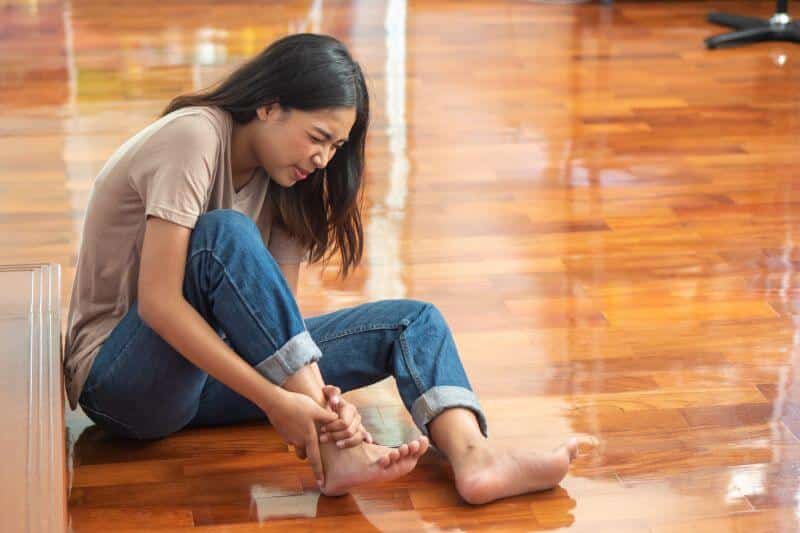We all have cuts and scrapes from time to time. Our feet and ankles are particularly susceptible to injury as we use them constantly. They are also on or near the ground, which tends to be rather grubby.
Many foot wounds are minor and easy to resolve. However, even the tiniest scrape can lead to infection, so you shouldn’t ignore anything that tears or damages the skin.
Here are some ideas for dealing with common foot wounds and everyday problems.
Cuts, Scrapes and Blisters
- Clean the wound with water to remove any dirt or gravel.
- Apply antiseptic cream or ointment. Always check with a pharmacist if you’re unsure what’s right for you.
- Cover with a clean bandage and apply a clean one daily.
- Don’t be tempted to pop any blisters. Keep the area clean and bandaged – it will break when it’s ready.
Puncture Foot Wounds
These are caused by stepping on a sharp object, like a nail. Puncture foot wounds don’t tend to bleed as much as cuts but they penetrate more deeply. Foreign bodies can get trapped in the wound, which easily leads to infection.
You should always get a professional to check a puncture wound – the likelihood of infection is much higher than with a cut.
Treating Minor Burns
- Cool the burn with cool or room temperature water for 20 to 30 minutes.
- Don’t use ice or ice-cold water.
- Be careful not to pop any blisters.
- After cooling apply Vaseline or a specialist burn healing gel (speak to your pharmacist).
- Loosely cover with a sterile, non-stick dressing. If you don’t have this to hand cling film works just as well – it protects the area and won’t stick.
Dealing with Sprains
It doesn’t take much to sprain your ankle. A slight misstep or stumble on uneven ground is enough to do damage. Always use the R.I.C.E method.
- Rest the injured foot.
- Ice the ankle to reduce swelling.
- Compression to support and stabilize.
- Elevate to further ease the swelling.
Fractures and Breaks
Your foot and ankle have 29 bones in total. That’s a lot of bones, so breaks and fractures are common. If you suspect this has happened, immobilise the foot and talk to your doctor, podiatrist or medical centre as soon as possible.
When to Get Professional Help
The following situations indicate a nasty infection so get professional help quickly.
- The wound won’t stop bleeding.
- The wound is dirty or was caused by something dirty.
- The wound was caused by a bite (animal or human).
- The wound is very painful.
- The wound appears infected – pus may be present and the surrounding area may be tender and hot.
- You might also feel generally unwell with chills, fever or swollen lymph nodes.
Foot Ulcers
Many minor foot wounds heal quickly but sometimes they spread deeper into the skin to form ulcers. This leads to serious issues such as tissue damage, open sores and blood flow problems. They certainly won’t clear up on their own, so it’s vital you see a professional immediately.
Underlying Conditions
In the event of injury, people with circulatory and cardiovascular conditions, such as atherosclerosis (poor circulation) or diabetes, are more susceptible to serious and long-term issues with their feet. In these cases it’s essential you talk to a podiatrist or other medical professional even if the injury seems insignificant.
Reassuring Care at Feet By Pody
For friendly help and advice visit one of our London foot clinics.

